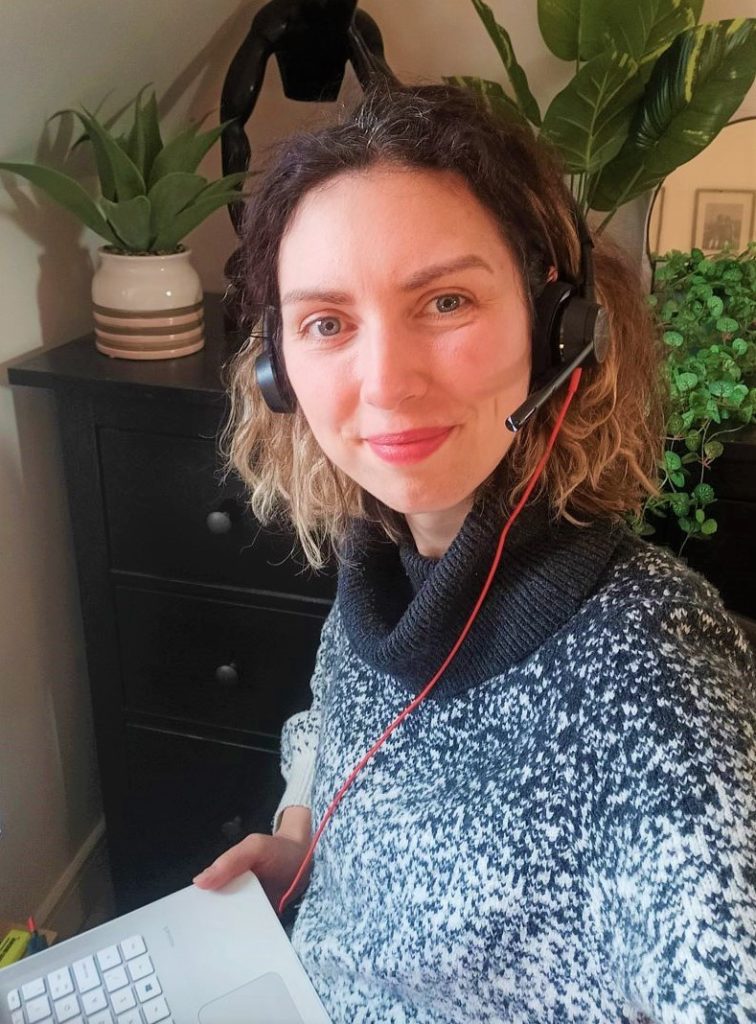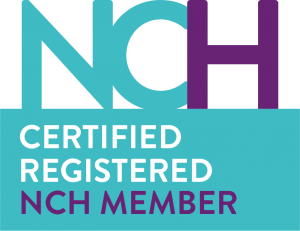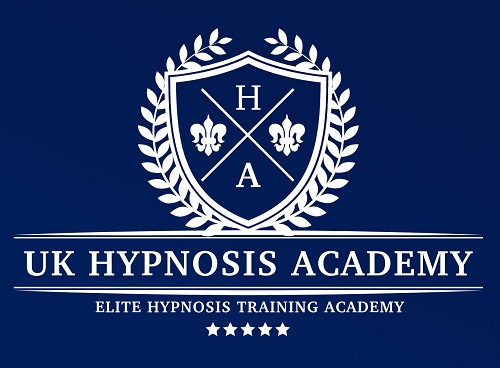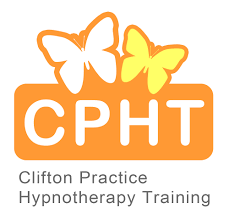About
Expert, professional, science-backed therapy
While conventional therapies focus on past issues and problems, hypnosis therapy with Jenny Armitage uses scientifically proven techniques to shift your focus away from anxious thoughts and towards your preferred future, creating positive change in a relatively short space of time. Jenny uses the only hypnosis-based treatment to be under scientific study, that being solution focused hypnotherapy.
Clinical hypnosis is an excellent tool to use for anxiety. It can help you change destructive patterns of behaviours (addictions, yelling, avoidance), remove the sting from flashbacks, and break the cycle of negative thoughts. You will notice changes early on, and most clients start sleeping better as a result. This therapeutic approach combines hypnosis with solution-focused talk therapy which empowers the problem-solving part of your brain and creates the correct chemicals within your brain and body to help you feel good again. What’s more, once Jenny teaches you this method you will be able to practise this on your own long after the therapy has finished.
The training Jenny embarked on is considered to be the gold standard within the UK. Her qualification, the Hypnotherapy Practitioners Diploma (HPD), is only awarded to approximately 20% of all practicing hypnotherapists. The Clifton Practice, where Jenny completed her diploma, places a strong emphasis on practical training from day 1 and the school prides themselves on only teaching techniques that are grounded in the latest research into neuroscience. Jenny’s approach has also been influenced by the kinetic shift technique developed by Karl Smith at the UK Hypnosis Academy, who champions rapid change for people with PTSD, and Barry Neale from Changeworks Academy who is a wonderful NLP instructor and practitioner.

About your therapist
Jenny works closely with other professional therapists and her clients through one-to-one sessions safely and effectively in person and remotely via Google Meet video calls. Before discovering clinical hypnotherapy Jenny completed a science degree in Dublin, then spent close to a decade working as an optometrist in the UK. But everything changed in 2013 with the sudden and unexpected collapse of her support network in the UK.
This began Jenny’s personal struggle with anxiety as she spent years trying to navigate the shock isolation and grief, not too dissimilar to an unexpected divorce. Over the years she went on to develop overwhelming anxiety attacks, depression, sleep disturbances and flashbacks to previous sexual trauma. She tried everything to remove the anxiety triggers and negative thoughts that consumed her life – but with little success. It wasn’t until she found clinical hypnosis that she could let go of the past and completely transform her life.
By finding clinical hypnosis as the solution to her personal issues, Jenny turned the most painful years of her life into her biggest inspiration. Now, she dedicates her therapy career to helping people like you to overcome the most deep-seeded anxiety. Alongside her therapy practice Jenny continues to work locally providing NHS eye tests and is mum to two young children. She recently completed further study in diabetes management with a view to doing more to help diabetics with sugar addictions and pain management for diabetic neuropathy.

What can I expect to happen
Clinical hypnosis therapy is a practical therapy. There are no magic wands to make the problem disappear. You must actively engage and participate to get the results you want. You will learn to reframe and refocus your thoughts and the way your mind reacts to stressful triggers; we look forwards, rather than backwards, focussing on your preferred future picture and what you want to achieve through your sessions; and I will provides you with tools to take away, practise, and apply in real life.
Learn the science about why are you feeling the way you are, how your brain and body accumulate and store stress and what you can do about it. Visualisations, stories and metaphors are used to make the science relatable, and hypnotic trance (which is an amplified state of pure focus and visualisation) then gives you, and your brain, the chance to process and release this stored stress.
This isn’t a therapy that is done to you; it is done by you, with the support and guidance of a trained practitioner. Our working relationship is designed to put you in the best position to understand, process and release stress peacefully and calmly. It isn’t a therapy that is done once a week in your hour-long sessions, but every day, by changing your thought patterns and noticing the difference. Between sessions you will be expected to do the homework provided and when you are ready, begin to take positive actions towards your preferred future goals. The clinical hypnosis that occurs in your session starts a process in your mind that continues on over the following hours and days.
This is therapy done in a sitting or lying down position. There is the option of having relaxation music playing in the background while you are in trance. Some of the trance occurs in a conversational way without the need to have your eyes closed. You do not need to close your eyes in order to experience hypnosis, though it often makes it easier to concentrate and think when you close your eyes.
If you are sceptical about hypnosis that is ok. I was sceptical too until I learned about hypnosis from a trained professional. There is a perception that you are under the control of the hypnotist, however this is an illusion drummed up for stage hypnosis. Clinical hypnosis is a scientifically-informed practice used by top athletes to push past limiting beliefs. Surgeons in Belgium are known to use clinical hypnosis to successfully anaesthetise patients for operations, and clinical hypnosis is commonly associated with smoking cessation and food addiction in the UK. There are hundreds of studies into the use of hypnosis for mental health, pain relief and performance.
FAQs
Hypnosis is a pure state of focused attention, nothing more, nothing less. Hypnosis therapy is not ‘done to you’. You can only be put into a hypnotic state with your consent.
It is my belief that we are in a constant state of hypnosis all the time. We can be in good hypnosis (seeing things from the best possible perspective), or bad hypnosis (the world is out to get me). We have a choice what we feed our minds with. Hypnosis therapy gives you the tools you need to put this bad hypnosis on the back burner and feel the results.
Talk therapy was developed in the early 1900s and hasn’t changed much. Added to this there’s been an explosion in what we know about the brain in the past 20 years. It makes sense to bring this into the therapeutic setting and build on what we’ve learned from talk therapy. Thanks to neuroscience its shown us that hypnosis therapy offers a way to create lasting change without spending years in a therapy chair.
In truth, hypnosis works just as effectively online as in a face to face setting. That is why I made the decision to move all my clients online following the corona virus pandemic of 2020/21.
All sessions with me are carried out using secure Google Meet one-to-one video calls. Each session is private and fully confidential. You can arrange your first appointment by dropping me a message or giving me a call and I’ll get back to you within 24 hours.
The NHS therapy of choice, CBT (cognitive behavioural therapy), has an approximate success rate of 13%. Over 90% of my clients have experienced a considerable improvement in their anxiety levels using hypnosis therapy. There is no silver bullet for anxiety, I cannot offer guarantees. However, I have found the key to my clients success is they really appreciate being given the information and tools to make change happen quickly so they can concentrate on getting on with their lives again.
Sessions are paid for via BACs or secure Paypal. To be taken to the Paypal payment page click here. More information is available on the Work with me page.
Before each session it’s important to make sure that other people in your house are aware not to disturb you for that hour. You can choose to wear headphones/headset to further add to your privacy. You will need a comfortable chair, ideally a computer or laptop (though we can use a phone), and a secure internet connection. Should we experience technical difficulties, then I will require an alternative way to contact you.
Your initial consultation is a chance for you to chat with Jenny and explain what you’d like to get from therapy. It can be done over the phone or by videocall. Jenny will have a few questions to ensure this is the right therapy for you too.
There are certain conditions that may be an obstacle to hypnosis therapy. Jenny will ask if you have been diagnosed with or suspect you have any of the following: bipolar disorder, schizophrenia, drug or alcohol induced psychosis, narcolepsy, suicidal intent.
If you choose to take the video call option then Jenny can advise you how to position your camera for therapy sessions and check if the lighting needs to be adjusted. This makes it much smoother when you have your first therapy session.
Yes. If you’re like me and enjoy measuring your success and tracking your improvement, each week we can do a quick questionnaire to show you where you are and where you want to be.
There are a few scenarios where I would need to consult with your GP or psychiatrist first before beginning therapy. These include (but is not an exhaustive list):
- Bipolar disorder
- Narcolepsy
- Psychosis
- Schizophrenia
- Suicidal intent
No, this is not possible. Hypnosis is a pure state of focused attention. You can choose to emerge from a hypnotic trance at any point. Jenny makes it clear in each session that should you not hear her voice after 5 minutes you will be able to calmly emerge from your hypnosis and look to re-establish an internet connection. Jenny will always ask you to have a back up method of communication available in case the internet drops during hypnosis.
Like being in a profound daydream where you are so focused on your thoughts but are fully aware that you can snap out of it at a moment’s notice should you wish to. Hypnosis is an experience and you will feel completely in control the whole time.
Though you will likely feel improvement after the first session, the recommended course of therapy is a minimum of six sessions (7 therapy hours). Think of it like having first aid and then rehabilitation after. Sometimes rehabilitation from years of thinking negatively takes longer than this so we review after session 6.
When you are in hypnosis you are in control of what you do. No-one can make you talk. There may be times during hypnotic trance when Jenny will ask you to nod to confirm that you have understood something, or move a part of your hand to indicate a yes or no. There may be times when Jenny will ask you to explain or describe what you are experiencing whilst in trance, however the option is there to continue to do the work privately also. Sometimes Jenny may ask you to repeat a phrase out loud whilst in trance if you are comfortable doing so.
Yes. Likely you will feel much more refreshed after a hypnosis session than when you started.
Jenny works predominantly with focused and driven adults who, for whatever reason, are finding themselves wrapped up in anxiety, consumed with fear, guilt and shame, and genuinely afraid of what might happen if they don’t get a handle on it soon.
Hypnosis therapy is easily done online or in person. In person sessions are held in St Neots. For remote therapy sessions all you need is a computer with a webcam, the Google Meet app on your phone/device or a google account on your computer, a strong internet connection and an email to receive the link for your session. Most of my clients choose to wear a headset as it improves the sound quality and creates a greater sense of privacy.
The initial consultation over the phone can give you the chance to ask questions about being hypnotised. The first therapy session includes taking a detailed case history, learning what hypnosis is and gives you the opportunity to experience being in hypnosis. I recommend to allow up to 2 hours for the first appointment. By the end of this session you will know if clinical hypnosis is right for you. Going into hypnosis is possible for anyone who is open to engaging with it and for those who are able to follow simple instructions.
Jenny’s approach is really well suited to clients who have trouble seeing pictures in their heads. There are ways to experience hypnosis without guided imagery. About 1 in 50 people struggle to visualise in this way, so if this sounds like you, you are not alone.
During hypnosis most clients choose to have their eyes closed to help them focus more easily. So do you imagine there would be any difference in hearing your therapist’s words through headphones or from 6 feet across the room? There are many benefits to online therapy, and it is no surprise that more and more clients are choosing to a therapist online.
Online therapy is excellent if you have a hearing impairment or tinnitus, because you have complete control over the volume of your therapist’s voice. In fact, there are some hypnotherapists who see clients in person that choose to speak into a microphone while their clients wear headphones so their voice is as clear as possible.
You can find Jenny on the National Council for Hypnotherapy list of practitioners here: https://www.hypnotherapists.org.uk/therapist-finder/view/plid/8523/
To qualify as a member of the NCH hypnotherapists must be fully qualified, insured to practice, complete annual continued professional development courses and most importantly must adhere to a strict code of conduct and ethics.
Contact
Book a free no obligation 15 minute phone to discuss your situation, to find out if this approach is the right fit for you and discuss the next step in going forward with treatment.
Email: info@jennyarmitage.co.uk
Tel/Whatsapp: 07713033305

Jenny Armitage
- Member of the National Council for Hypnotherapy
- Diploma in Solution Focused Hypnotherapy
- Hypnotherapy Practitioners Diploma
Jenny Armitage is a UK-based psychotherapist and clinical hypnotherapist, specialising in severe anxiety and the depression that often stems from it. She works exclusively with adults who are at breaking point (or very close to it), often clients who have tried counselling and CBT before, who are looking for specialist help to get their lives back on track and start feeling like themselves again.



